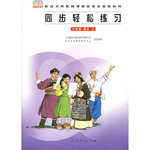题目内容
_________ make us understand the whole story, our foreign teacher Jennifer told it very slowly.
- A.In order that
- B.In order to
- C.Pay attention to
- D.Look forward to
B

练习册系列答案
 同步轻松练习系列答案
同步轻松练习系列答案
相关题目
题目内容

 同步轻松练习系列答案
同步轻松练习系列答案